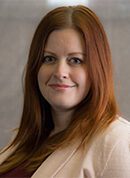Course Information
| Session |
|---|
| Credits | 1.5 CEUs or 15 PDHs |
|---|---|
| Registration dates | We accept registrations through the first week of classes, unless enrollment is full, and unless the class was canceled before it started due to low enrollment. |
$250.00
Credits: 1.5 CEUs or 15 PDHs
The academic job market is brutal, and especially so for aspiring academic librarians. With more applicants than there are jobs, the competition is fierce. First-time academic library job seekers (or even experienced job seekers) may feel lost, overwhelmed, and exhausted by all that is involved in applying for an academic library job–and even more so if they have never been clued in to how the academic search process really works. There is an unspoken unwillingness in academic libraries to share functional details of the academic search process, and allowing applicants to wander blindly through the search process benefits no one.
Knowing the expectations and way an academic search functions won’t necessarily make the process easier, but it will allow applicants to be smarter about how they craft their application materials, interact with the search committee, and interview. This course will shed light on the academic search process and give academic library job seekers a much-needed peek behind the hiring curtain that will help them have more agency and power over their applications. Additionally, by allowing applicants to better understand how academic searches tend to work and being clear about the expectations involved, we give them a better opportunity to present their authentic selves in their applications and interviews. The course will cover: coded language in job descriptions; typical search committee procedures; candidate scoring matrices and rankings; crafting stand-out application materials using qualification charts; and how to interview your interviewers.
| Session |
|---|
| Credits | 1.5 CEUs or 15 PDHs |
|---|---|
| Registration dates | We accept registrations through the first week of classes, unless enrollment is full, and unless the class was canceled before it started due to low enrollment. |
The academic job market is brutal, and especially so for aspiring academic librarians. With more applicants than there are jobs, the competition is fierce. First-time academic library job seekers (or even experienced job seekers) may feel lost, overwhelmed, and exhausted by all that is involved in applying for an academic library job–and even more so if they have never been clued in to how the academic search process really works. There is an unspoken unwillingness in academic libraries to share functional details of the academic search process, and allowing applicants to wander blindly through the search process benefits no one.
Knowing the expectations and way an academic search functions won’t necessarily make the process easier, but it will allow applicants to be smarter about how they craft their application materials, interact with the search committee, and interview. This course will shed light on the academic search process and give academic library job seekers a much-needed peek behind the hiring curtain that will help them have more agency and power over their applications. Additionally, by allowing applicants to better understand how academic searches tend to work and being clear about the expectations involved, we give them a better opportunity to present their authentic selves in their applications and interviews. The course will cover: coded language in job descriptions; typical search committee procedures; candidate scoring matrices and rankings; crafting stand-out application materials using qualification charts; and how to interview your interviewers.
 Kristina Clement, MA, MSIS is the Assistant Director of Academic Engagement & Instruction for the Collegiate Librarians at Kennesaw State University (KSU) Libraries and is the co-founder and chief human resources officer for the Journal of Open Educational Resources in Higher Education. She coordinates the instruction program at the KSU Libraries and regularly trains instruction librarians on how to adapt Universal Design for Learning to information literacy instruction and outreach. Her research agenda encompasses equitable outreach, organizational change in academic libraries, empathetic leadership, and the faux equity of the one-shot instruction session. Kristina is also working on a Doctorate in Higher Education Leadership and Practice from the University of North Georgia, where she is studying leadership and organizational change in academic libraries. You can with me on LinkedIn.
Kristina Clement, MA, MSIS is the Assistant Director of Academic Engagement & Instruction for the Collegiate Librarians at Kennesaw State University (KSU) Libraries and is the co-founder and chief human resources officer for the Journal of Open Educational Resources in Higher Education. She coordinates the instruction program at the KSU Libraries and regularly trains instruction librarians on how to adapt Universal Design for Learning to information literacy instruction and outreach. Her research agenda encompasses equitable outreach, organizational change in academic libraries, empathetic leadership, and the faux equity of the one-shot instruction session. Kristina is also working on a Doctorate in Higher Education Leadership and Practice from the University of North Georgia, where she is studying leadership and organizational change in academic libraries. You can with me on LinkedIn.
Reviews
There are no reviews yet.